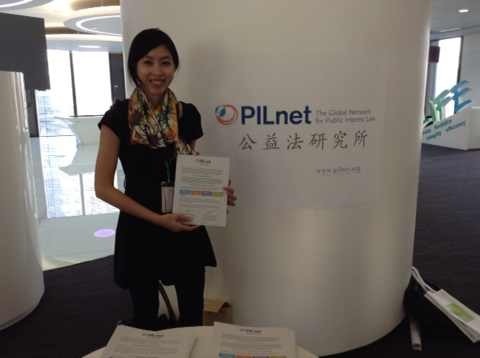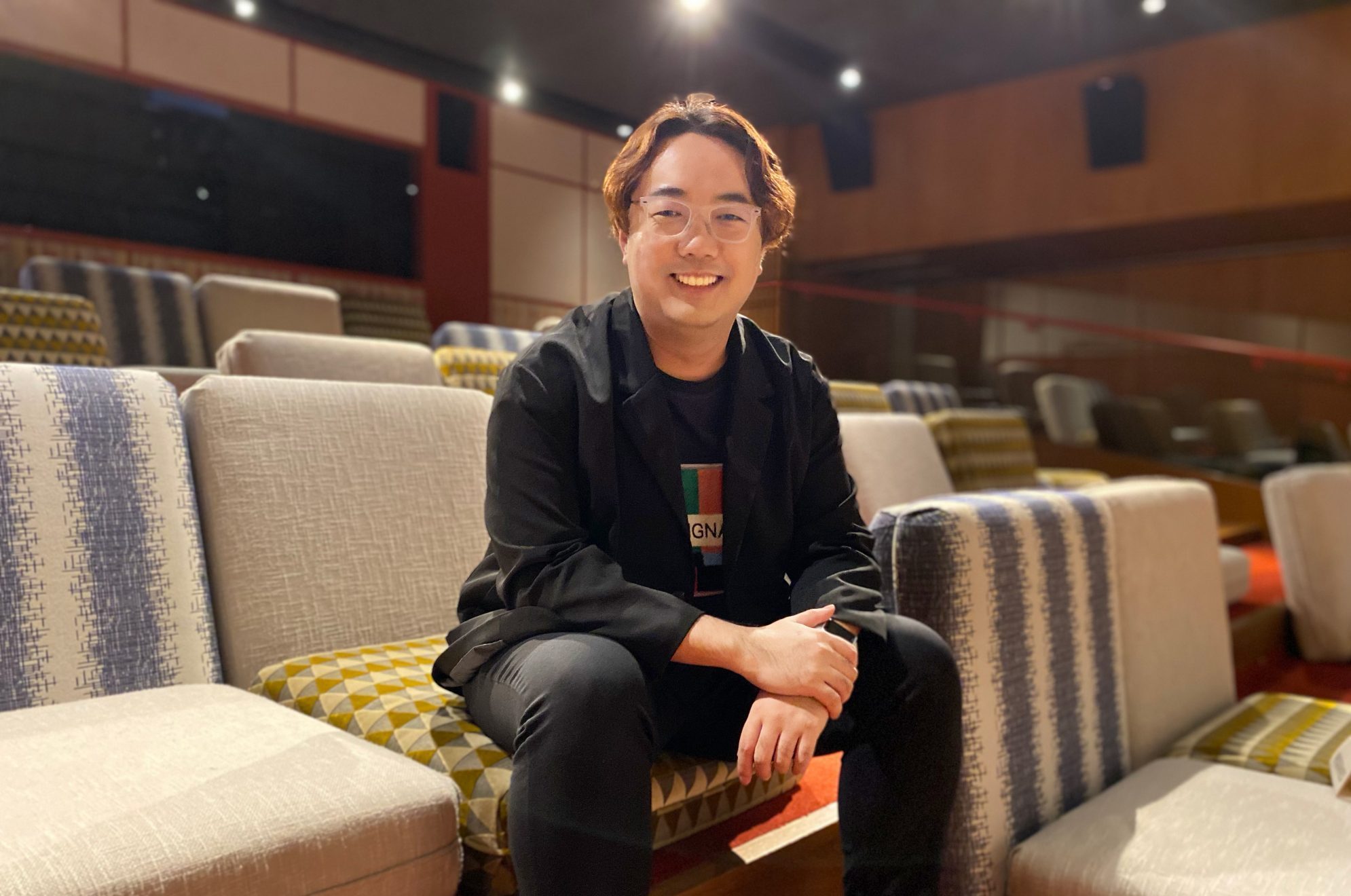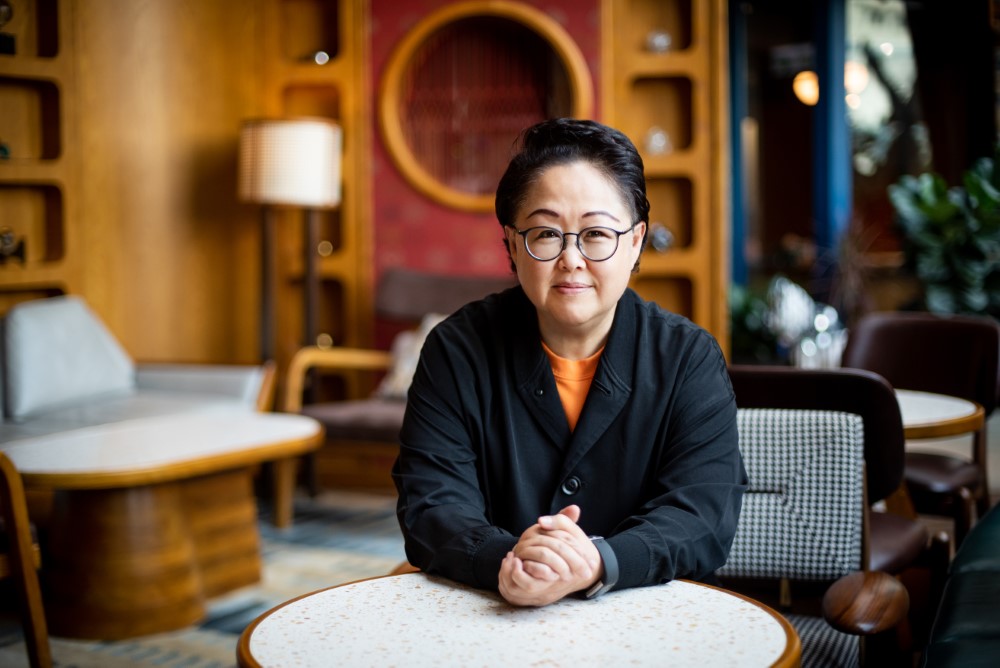Interview with PILnet
Many people working in the social enterprise field inevitably come across legal problems from time to time, from drafting contracts to planning advocacy campaigns on certain issues to speaking out for legislative change. On the other hand, there are commercial lawyers who are interested in social causes and ready to offer pro bono legal services to individuals and organizations in need. Yet how could these two groups connect to each other?
PILnet is one organization that works towards making that happen. We had the pleasure to interview Tze-wei Ng and My Khanh Ngo from PILnet last month to learn more about their work and how pro-bono lawyers could help your organization.

(Tze-wei Ng at PILnet)
GL: How did you stumble upon this job?
Tze-wei: I was just graduating from Columbia Law School, and looking for potential opportunities for a public interest law fellowship. When speaking with my professor at Columbia Law School, the founder and president of PILnet, about some possibilities, he asked if I would be interested in launching the Hong Kong chapter for the organisation. And I said yes!
My Khanh: About a year ago I was doing some research at a local public interest law firm in Beijing, building off my previous work on China law and development at NYU. I had been admitted into the JD program at Yale Law School, but I deferred when offered the opportunity to work at PILnet – I wasn’t quite ready to leave China yet and I thought it would be good for me to gain more experience and immerse myself in pro bono work in China before I started grad school.
GL: Could you tell us a bit more about what is pro bono legal service?
Tze-wei: It basically refers to the practice of providing free legal services to individuals and non-governmental organizations that otherwise have a difficult time in affording these much needed services. As it is a rather common practice in the U.S. and Europe, many U.S. law firms allocate time for their lawyers to do this kind of charitable work, which counts as part of their work hours. Many law firms also take pro bono contributions of individual lawyers into account come evaluation and review time and when considering possible promotions.
GL: But why is it that we seldom hear of this in Hong Kong?
Tze-wei: That’s a good question because Hong Kong is actually well known for its rule of law. And many international law firms have set up offices in Hong Kong. But relatively few lawyers here engage in pro bono work, which is a pity, as there are many NGOs, including social enterprises, in Hong Kong and they can do more for the society’s disadvantaged if they are supported by free legal assistance. Many lawyers in Hong Kong are already doing much community service, but they could have more impact if they choose to do pro bono work with their legal expertise and have a way to do it.
GL: So that’s what you want to do with PILnet?
Tze-wei: Yes! We want to increase people’s awareness of public interest law in both Hong Kong and mainland China. We work with local universities to offer courses and activities on public interest law, and help students realize that this could become a possible career. We also work with local law firms by operating a “pro bono clearinghouse,” which provides a way to connect NGOs who need legal services and lawyers who can offer the vital pro bono assistance.

(My Khanh Ngo at PILnet)
My Khanh: I have been running the pro bono clearinghouse for mainland China. In fact, it’s been a part of the research I am doing on this field over the past year, and the findings are quite a surprise to me. Many NGOs and social enterprises do not realize that they could have the opportunity to get free legal services from pro bono lawyers. For those who do try to seek assistance, they find it difficult to find the right lawyers to help them. So we at PILnet have created a match-making platform to facilitate this process.
GL: Did you have any challenges in this process?
Tze-wei: Quite often people would ask us, “Why do we need pro bono legal work for Hong Kong?”, since Hong Kong is so rich and has a generous legal aid system. However there are still gaps to fill, and there is always room for individuals to give back to society. Working with some local partners, we are launching the very first Asia Pro Bono Forum in Hong Kong in May this year, which we are very excited about! We hope to bring together all stakeholders under the same roof and have them talk to each other, and discuss what are some of these unmet needs and how these needs can be addressed.
My Khanh: Yes, the conference is a major milestone for PILnet this year. If any Goodlab member is interested in attending the conference please check out our event website to learn more: www.probono.hk.























 Hands-on Experience
Hands-on Experience 








































